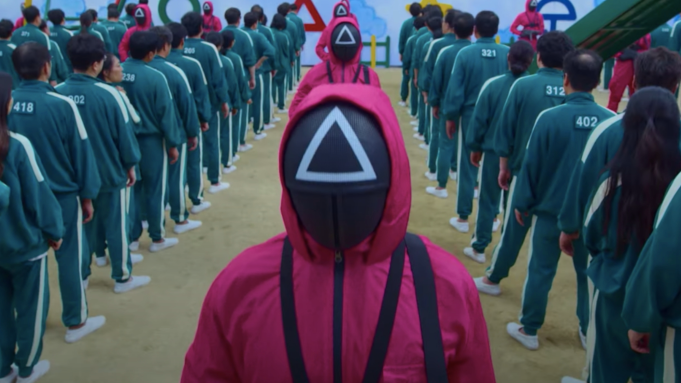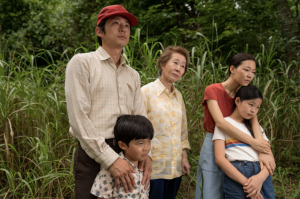Netflix’s “Squid Game” depicts themes of poverty, wealth in a dystopian society
You are completely desperate, with little money to your name. A tall, mysterious and foreboding figure dressed in a black-and-white suit approaches you. He offers to rid you of all your despair if you play a series of children’s games. But the catch is such games could cost you your life. What would you do?
For protagonist Gi-Hun and hundreds of others living in poverty, the prize fund consisting of over $40 million is enough to keep them playing.
“Squid Game,” a South Korean drama that has sparked international sensation, encapsulates both the harsh reality of poverty and the lengths some are willing to go to escape it.
Currently the most popular show in the nation, the nine-episode TV series is the most watched show ever on Netflix.
On a cultural level, the gory and immensely violent show differs greatly from the romanticized and jovial lives depicted in typical K-Dramas. “Squid Game” depicts the darker and less-talked-about side of Korean society.
Hwang Dong-hyuk, the creator of “Squid Game,” said that the story was meant to convey a modern capitalist society. The drama is based on Dong-hyuk’s personal financial struggles. In fact, he first wrote the script in 2008 when his financial situation was at its worst.
Ironically, although the higher authority takes advantage and prays on the desperation of the most marginalized members of society, within the game, it is strictly egalitarian.
Perhaps the best part of the show is its excitement. “Squid Game” does a remarkable job of keeping viewers in suspense. The show contains discrete foreshadowing. Clues are intricately and cleverly woven throughout, allowing for the drama’s smooth conclusion. The strangely addicting music, humming and high-pitched, puts the audience in an almost hypnotic state, further conveying the creepy and sinister theme of the show.
In addition to the show’s extraordinary cinematography, the strong and authentic bonds between characters leave the audience longing for their increased screen time. The formation of intense attachment and fondness to the characters occurs, leaving the audience heartbroken.
After watching “Squid Game,” obsession with the drama is inevitable, but perhaps greater than that is the anticipation for a second season. If looking for an immensely complex, suspenseful and dystopian show, “Squid Game” is sure to satisfy.















